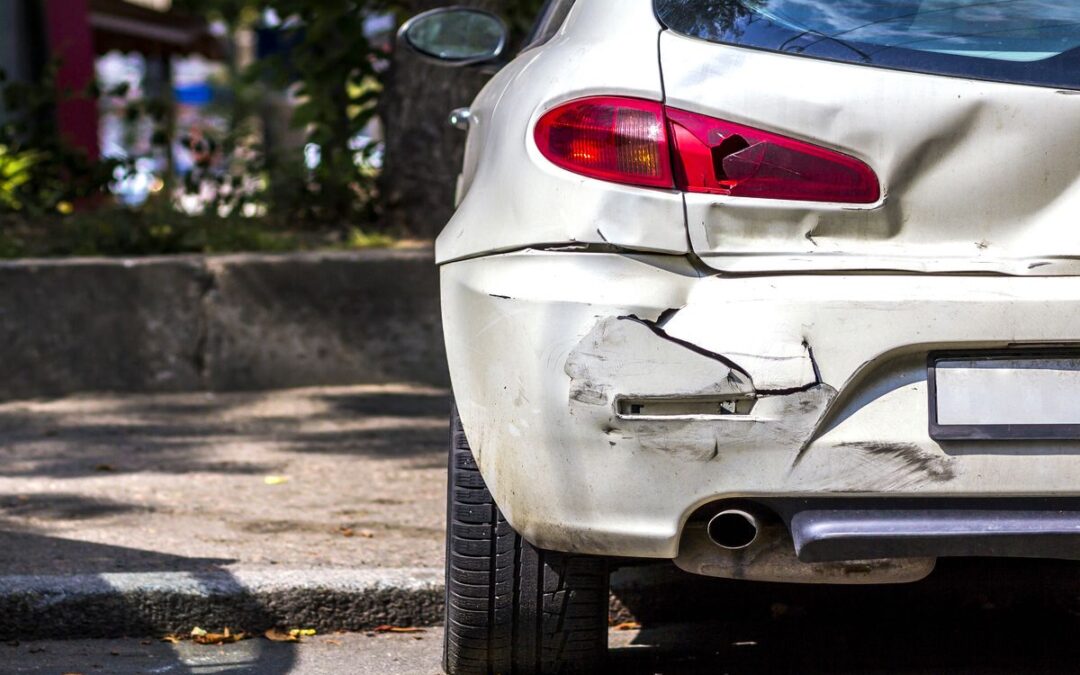A hit and run. In Georgia, as in many states, the aftermath of such an incident can be overwhelming. But fret not! This guide will walk you through exactly what to do following a hit and run accident in the Peach State. According to the Georgia Department of Transportation, there are approximately 18,000 hit an run accidents in our state each year. Let’s take a look to see what you can do if you are involved in a hit and run while driving in Georgia.
1. Prioritize Your Safety
Before diving into legalities or fault, your safety comes first.
Why It’s Crucial: The scene of an accident, especially busy Georgia roads, can be dangerous.
Georgia Nuance: Georgia’s Move-Over Law mandates moving over one lane when you see law enforcement or emergency vehicles. Find a safe place away from traffic.
Check yourself and any passengers for injuries. If possible, move your vehicle to a safer spot, like a shoulder or parking lot.
2. Dial 911
Always report the accident, even if it is a hit and run incident.
Why It’s Crucial: Police reports are invaluable when pursuing a hit and run claim.
Georgia Nuance: Under Georgia law, leaving the scene of an accident, especially one involving injuries, can lead to serious criminal charges for the fleeing driver.
Even if you think you’ve identified the fleeing vehicle, do not chase them. Let law enforcement handle it.
3. Document Everything
In the absence of the at-fault party, evidence becomes your strongest ally.
Why It’s Crucial: You’ll need to provide a comprehensive account to law enforcement, insurance companies, and potentially a court.
Georgia Nuance: Given Georgia’s modified comparative negligence system, ensuring the hit and run driver is found 100% at fault is vital.
Jot down the time, location, and direction of the fleeing vehicle. Capture pictures of your car’s damage, skid marks, and any injuries. Talk to witnesses and collect their contact information.
4. Notify Your Insurance
Timely notification to your insurance company is key.
Why It’s Crucial: Insurance companies often have time-sensitive protocols for reporting accidents.
Georgia Nuance: In Georgia, if the hit and run driver isn’t identified, claims are typically made under your Uninsured Motorist (UM) coverage.
Familiarize yourself with your policy’s specifics. What’s your UM coverage limit? Are there deductibles?
5. Seek Medical Attention
Don’t underestimate your injuries, even if they seem minor initially.
Why It’s Crucial: Some injuries manifest symptoms later. Immediate medical evaluation ensures your well-being and bolsters any potential claim.
Georgia Nuance: Georgia allows accident victims to seek compensation for medical expenses, even future ones, stemming from the accident.
Always keep a detailed record of medical visits, treatments, and any related expenses.
6. Consult a Georgia Accident Attorney
Legal guidance can be invaluable following a hit and run.
Why It’s Crucial: Personal injury attorneys can navigate the intricate waters of Georgia law, maximizing your compensation.
Georgia Nuance: Given the challenges of identifying the at-fault party in hit and run cases, having a legal expert in accidents familiar with Georgia’s legal landscape can be a game-changer.
Beyond just advising, attorneys can negotiate with insurance companies, track down witnesses, and even tap into resources to possibly identify the fleeing driver.
7. Understand Georgia’s Hit and Run Penalties
While you’re the victim, understanding the penalties can be empowering.
Why It’s Crucial: Knowing the potential consequences for the hit and run driver can offer a sense of justice and closure.
Georgia Nuance: Depending on the severity, hit and run culprits in Georgia can face misdemeanor charges, hefty fines, jail time, or even felony charges if there are severe injuries or fatalities.
Georgia takes hit and run offenses seriously. If the culprit is identified, they’ll likely face both criminal and civil repercussions.
In Conclusion
Being the victim of a hit and run accident in Georgia can be a jarring experience. However, armed with knowledge and a clear action plan, you can confidently navigate the aftermath. Remember, while the steps above provide guidance, each situation is unique. Seeking the expertise of professionals, whether law enforcement or legal counsel, is always a smart move. You’re not alone on this journey, and Georgia’s legal framework is designed to support and protect you.

